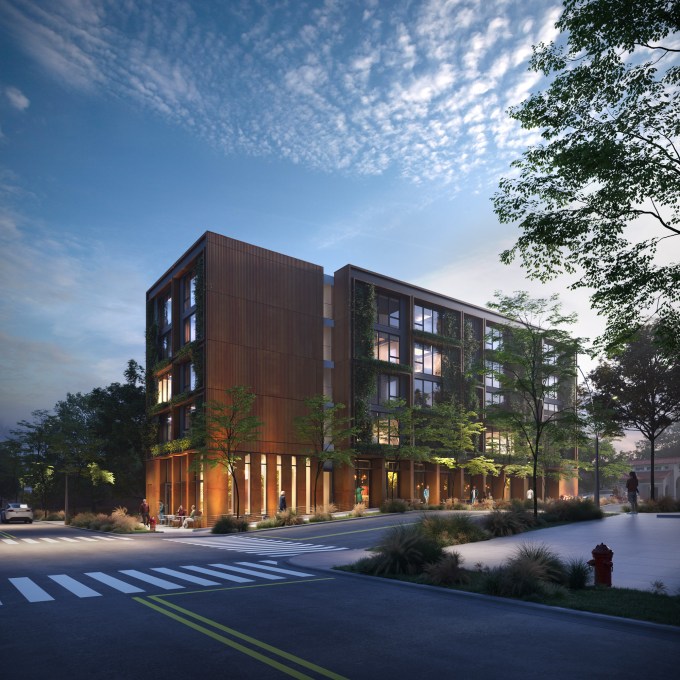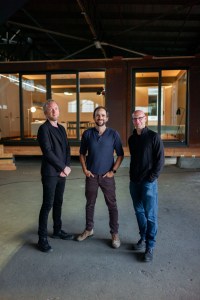Juno, a proptech startup which aims to build more sustainable and affordable apartment buildings, has raised $20 million in a Series A funding round.
Comcast Ventures, Khosla Ventures and Real Estate Technology (RET) Ventures co-led the financing, which brings the company’s total raised to $32 million since its 2019 inception. JLL Spark, Vertex Ventures, Anim, K50, Foundamental and Green D Alumni Ventures also participated in the Series A investment.
Juno co-founder and CEO Jonathan Scherr said the San Francisco-based startup plans to build all electric properties by assembling “the first OEM ecosystem for ground-up development.” (For the unacquainted, OEM stands for “original equipment manufacturer.”)
“We’re…treating housing development like product development, a process we call ‘productization,’ ” he told TechCrunch. “By creating buildings that are worthy of being repeated, tools and systems can be created to enable continuous improvement and increase efficiency. If buildings are considered or designed in a one-off context, then the learnings from one project to the next will fail to exist.”
Note that Juno’s productization could be considered similar to the more commonly used term prefabrication in some aspects. While prefab construction company Katerra crashed and burned, a number of other companies in the space continue to raise money and grow, including Abodu and Mighty Buildings, which is also backed by Khosla but is more focused accessory dwelling units and single-family homes. There is also North Carolina-based Prescient, which is also constructing multifamily housing and hotels through prefabrication.

Image Credits: Rendering of Austin project; Engraff Studio / Juno
Juno’s theory is that via “productization,” it can create the tools, systems and processes that can lead to things like reduced design timelines, increased precision in estimation and scheduling and a “significantly accelerated” construction process. All this, Scherr said, can result in more affordable housing options for people all over the United States. Also, Juno claims that its design process, for example, is 60% faster than in traditional real estate development.
Like other players in the space, Juno of course touts an approach that it says is far more sustainable than traditional construction methods.
“Today, construction refuse is literally 2x that of all municipal refuse combined in the U.S.,” Scherr told TechCrunch. “The Juno system creates efficiency in the design, supply chain, and construction of buildings that reduce waste and energy usage.” Features include low-carbon, all timber construction, more exposed wood (which Juno says is anti-microbial) and entirely gasless buildings, for example.
Thanks to its focus on all-electric buildings in cities that have established roadmaps to clean energy generation, the Juno residential system is trending toward a net zero target for embodied carbon in its multifamily residential units, Scherr said.
Scherr founded Juno with BJ Siegel, who was a designer of the original Apple Store, and Chester Chipperfield, who currently serves as an advisor to the company. Chipperfield previously served as global creative director at Tesla, head of special projects at Apple and head of digital at Burberry. Scherr has worked as a venture investor and advisor to a number of companies.
“As the concept architect for Apple’s retail program going back as far as 1999, BJ [Siegel] had thought about how to create an identity for the built environment that deserved to be repeated,” Scherr said. “By doing so, he and his colleagues at Apple began to think about Apple retail more like Apple’s products: grounded in a decentralized supply chain.”

Image Credits: From left to right: Chester Chipperfield, co-founder and advisor Jonathan Scherr, co-founder and CEO BJ Siegel, co-founder and Head of Design / Juno
Juno was created with a similar model in mind: with the goal of designing “better” housing that could be replicated so that the company is able “to build out a supply chain and lay the groundwork for learning systems in ways that have never been possible before,” said Scherr, whose father was a real estate developer.
Juno is starting out by building what it describes as the first national network of mass timber apartment buildings at scale with all-electric buildings in cities across the United States. And it’s partnering with Swinerton and Ennead Architects to put its model into practice. The startup has also broken ground on its first project — an apartment building in East Austin — and currently has more than 400 units in development. The East Austin building is slated to open in 2022. Juno also has sites planned for Seattle and Denver.
Looking ahead, the company plans to use its new capital to continue to build out its product, break ground on its first cohort of projects and engage with more developers.
Juno’s investors are naturally bullish on what the company is doing, and plans to do.
Evan Moore, partner at Khosla Ventures, said he does not generally invest in real estate development companies or builders or architects.
“But when a strong team is working on a dramatically different product in an important industry, I’ll get behind it,” he wrote via email.
Historically, Moore added, apartment development has been a finance-driven industry, rather than product-driven, despite the fact that apartments are consumer products and derive their value from their use.
“So there’s a tremendous opportunity to design buildings with the customer experience at the forefront,” he said. “What if Apple built apartment buildings? To me, that means working backwards from the experience you want to create, designing the components, supply chain and systems to support it, and working within cost as a constraint. That’s an ambitious idea, and an experiment worth undertaking.”
Sheena Jindal, principal at Comcast Ventures, notes that America’s housing stock is increasingly aged and in short supply — making it more difficult for people to buy houses. Her firm, she said, believes that everyone deserves access to an affordable home.
“When we first met the Juno team, we were struck by their first principles approach to building,” she wrote via email. “Juno fundamentally understood what was broken in multifamily housing production and tackled it head on by focusing earlier in the value chain with its design and OEM sourcing strategy. Juno partners with existing players in the value chain, rather than displacing them.”
Source Link With an Apple Store designer on board, Juno raises $20M to build apartments more sustainably
Leave a Reply